Kurdistan Region Officials Urge Strong Voter Turnout as Iraq Holds National Elections
Kurdistan officials urge strong voter turnout in Iraq's parliamentary elections, emphasizing participation as essential for defending Kurdish constitutional rights in Baghdad.
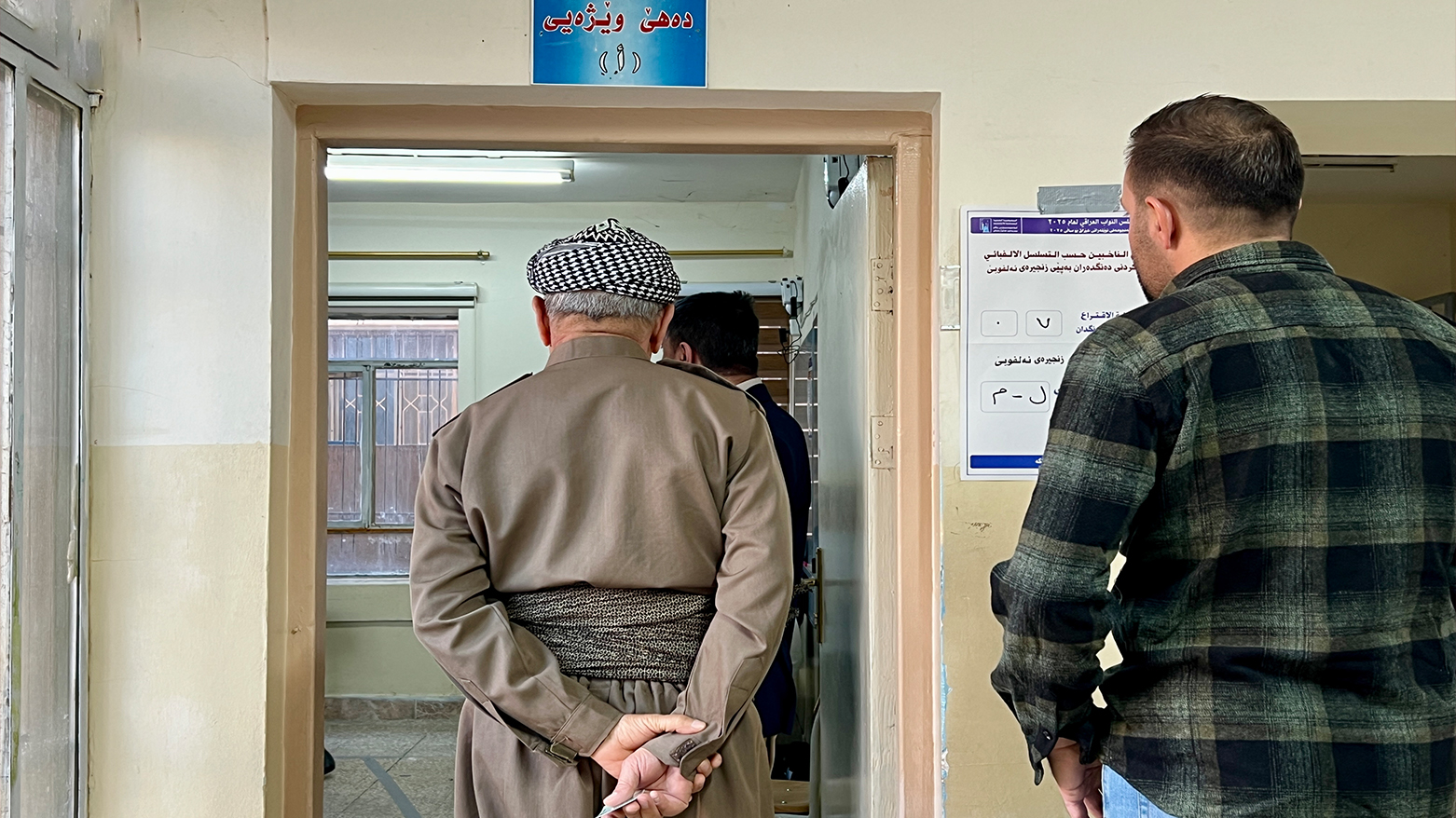
ERBIL (Kurdistan24) − Senior officials across the Kurdistan Region called on citizens to actively participate in Iraq’s parliamentary elections on Tuesday, underscoring that voting is both a national right and a moral responsibility.
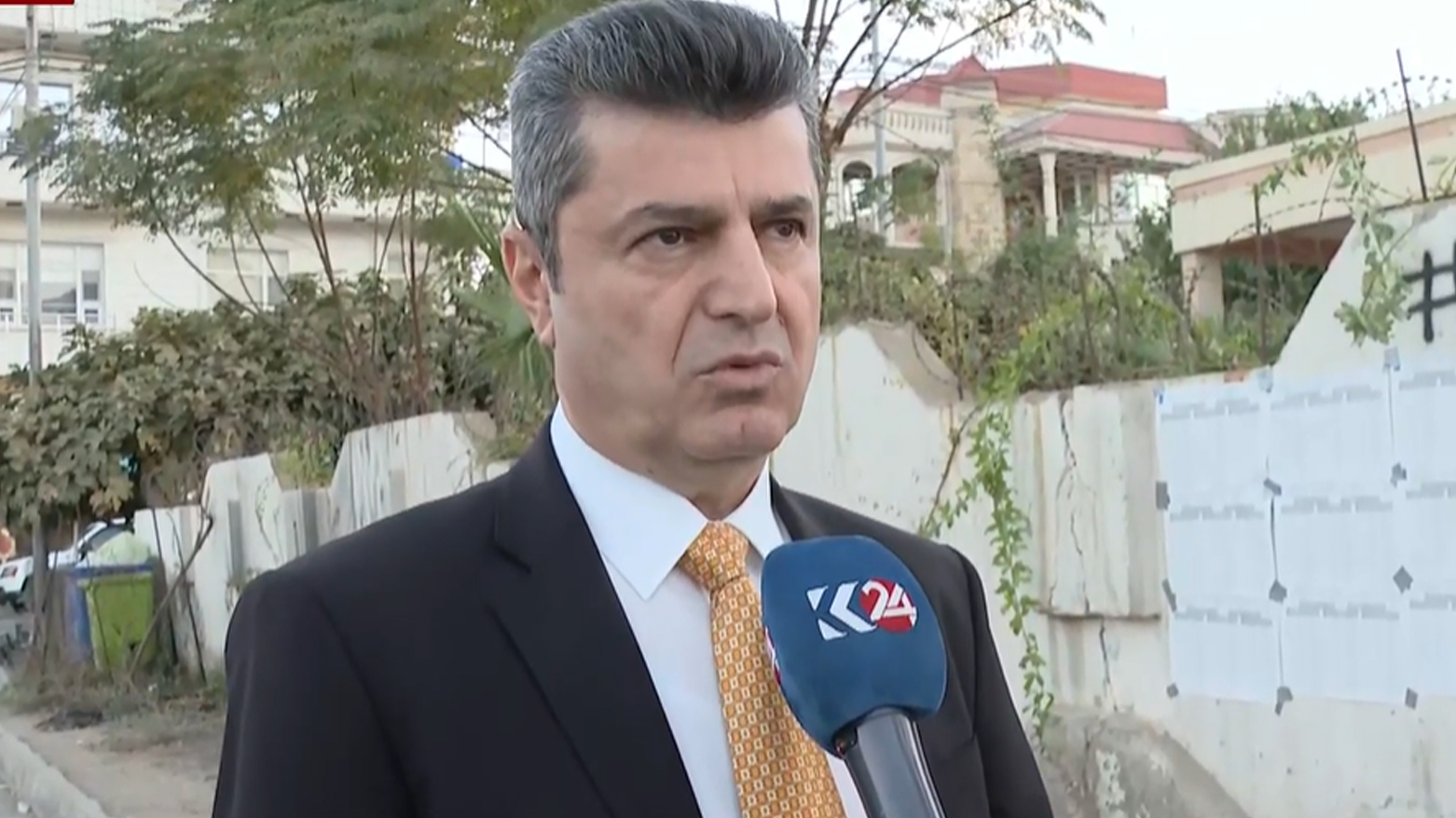
In Duhok, Governor Ali Tatar cast his ballot and urged residents to take part in the electoral process, describing participation as essential for protecting the rights of the Kurdish people.
“Like every Kurdistani individual, participating in the elections is both a duty and a right,” Tatar told Kurdistan24. “We believe that through this vote, Kurdistan can free itself from the injustice and oppression imposed on its people. If we want to be strong in Baghdad and safeguard our rights, we must feel the weight of this responsibility.”
He called on all citizens of the Kurdistan Region to “fulfill this duty with enthusiasm and determination, and to participate in the process to secure their constitutional rights.”
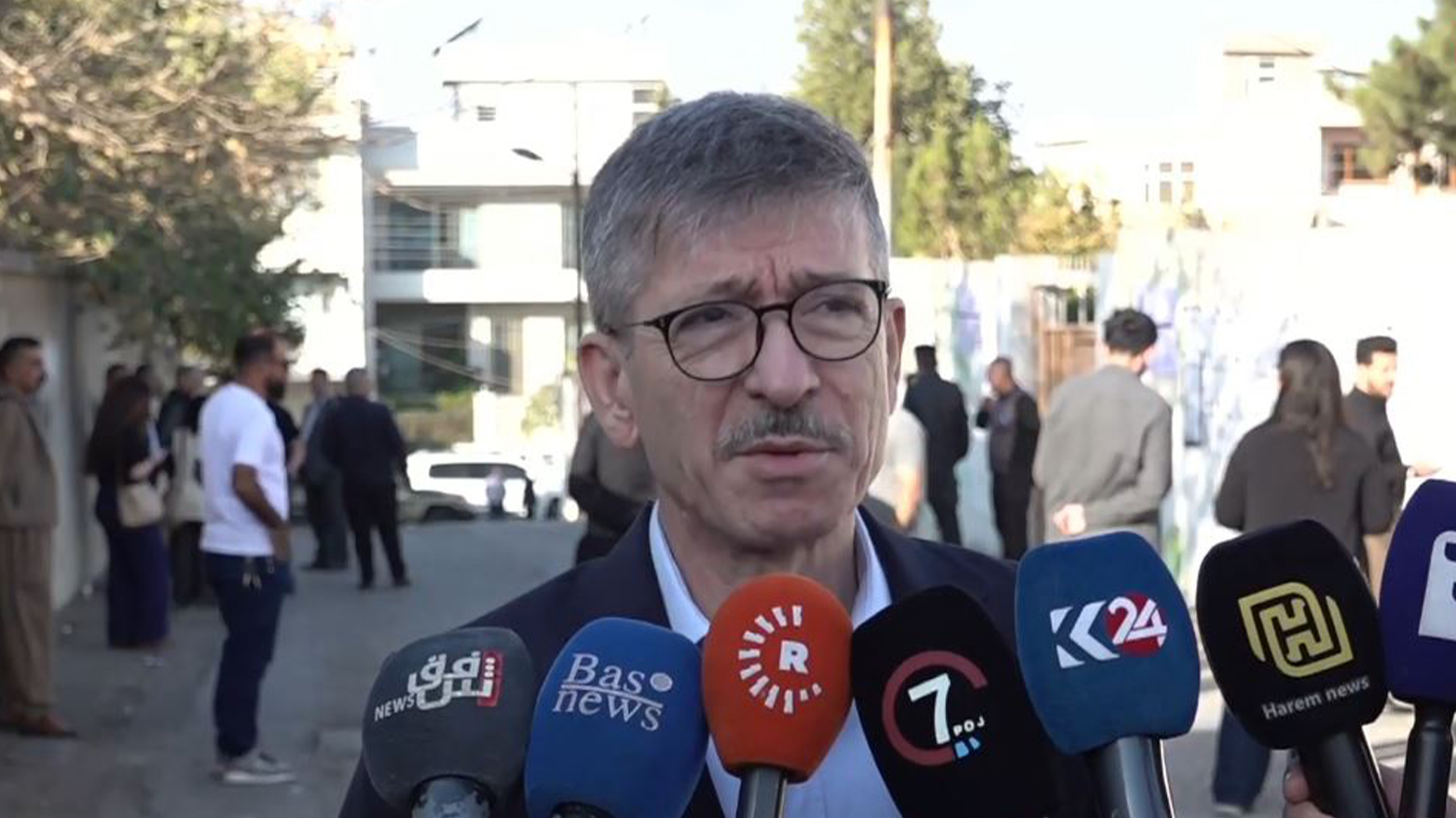
Meanwhile in Sulaimani, Ari Hersin, head of the Kurdistan Democratic Party’s fourth branch, highlighted the significance of civic awareness in shaping Iraq’s political future. Speaking after casting his vote, Hersin said, “It is crucial for our people to be conscious of how they vote. Turnout in Sulaimani has been relatively low so far, and we need greater participation in political processes.”
He emphasized that voting represents both “a people’s right and an ethical duty,” noting that he personally supported a list that could “bring prosperity, well-being, and freedom to our region.”
“These elections are vital,” he added. “We face many challenges with Baghdad—these cannot be solved through conflict, but through democratic participation. By being present in parliament, we can change the chauvinistic attitudes directed against Kurdistan and work, as a united team, to resolve outstanding disputes between Erbil and Baghdad.”
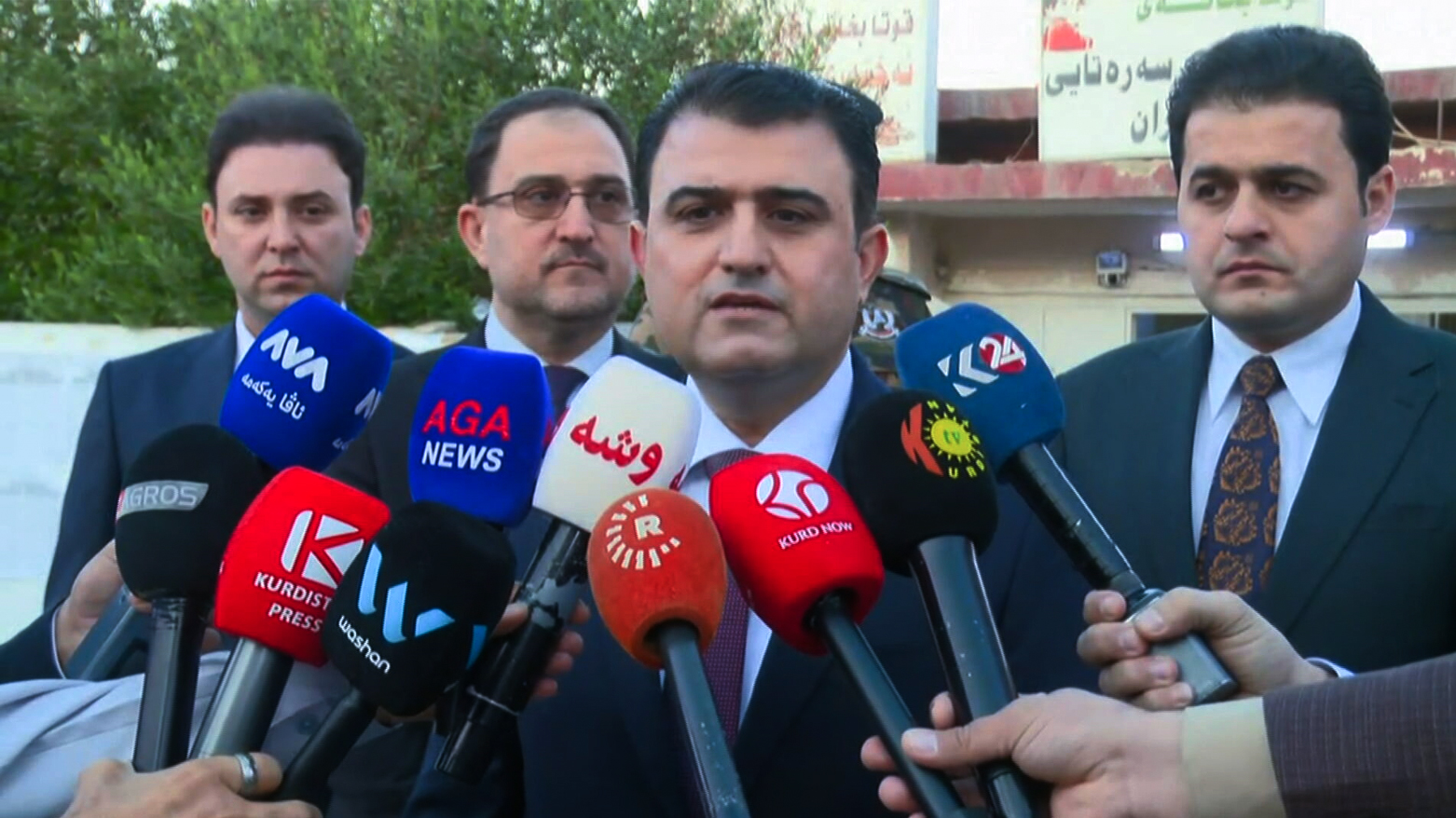
In Kirkuk, Omed Sabah, Chief of Staff to the Kurdistan Regional Government (KRG) Council of Ministers, voted early in the day and urged all Kurds in the province to head to the polls.
“Voting in Kirkuk is not only a political act—it is a vote for the city’s identity and history,” Sabah said during a press conference after casting his ballot at the Akhtar polling station. “It is also a vote for all the struggles and sacrifices made for Kirkuk.”
He expressed hope that Iraq’s Independent High Electoral Commission (IHEC) would “uphold integrity and transparency throughout the process, ensuring the elections conclude smoothly and successfully.”
Sabah also appealed to all Kurdish political parties in Kirkuk to work together in unity, emphasizing the importance of coordinated efforts “to better serve the people of the province.”
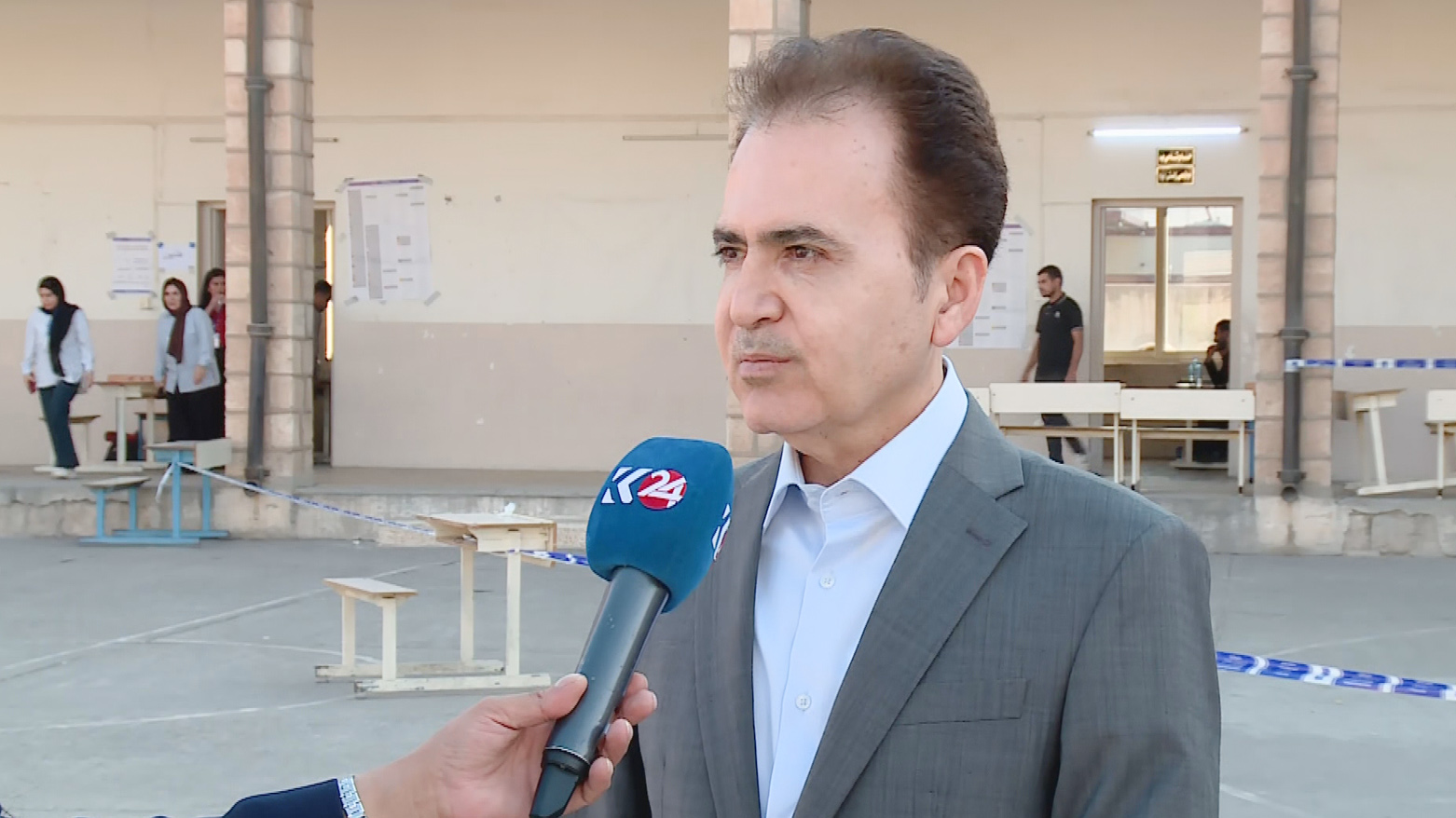
In Erbil, Pshtiwan Sadiq, Minister of Endowment and Religious Affairs and a member of the KDP Political Bureau, called on citizens across the province to take part in the voting process.
“I urge all the beloved people of Erbil—from every town, village, and district—to participate in these elections,” Sadiq told Kurdistan24 after casting his ballot.
He described the vote as “decisive and vital,” encouraging citizens to support candidates who “serve the people and defend the integrity of the Kurdistan Region.”
“It pleases us to see Kurds united in defending the constitution, federalism, and Kurdistan’s constitutional rights,” Sadiq added.
He further noted that the political map of Iraq will remain unclear until after the final vote count, saying, “Once the results are announced, we will cooperate with those who believe in democracy and federalism to form a service-oriented and democratic government—one that respects the rights of the people of Kurdistan and does not undermine them.”
The minister also highlighted the importance of voter participation in Kirkuk and other Kurdish-populated areas outside the Kurdistan Region’s administration, stressing, “We have a major plan to serve these areas, and we hope that through these elections, we can bring them back under the Region’s administration.”
Further south, in Khurmatu, residents participated enthusiastically in the elections, many wearing traditional Kurdish attire as they headed to the polls.
Kurdistan24 correspondent Hemen Dalo reported that Kurdish residents voted with hope and determination, believing the elections could help restore their rights after years of displacement and tension.
One voter said, “This election is decisive for our future—we must all participate to reclaim our rights. I am proud to vote today here in Khurmatu.” Another resident added, “These elections are for our future and for our children. After the tragic events of October 16, many Kurds were displaced, but now most have returned. I urge everyone to vote for the sake of Khurmatu and Kurdistan.”
Khurmatu, a Kurdish-majority district outside the formal administration of the Kurdistan Region, was formerly part of Kirkuk province before it was reassigned to Diyala under Saddam Hussein’s Arabization policies.
The general parliamentary elections across Iraq and the Kurdistan Region mark the country’s sixth legislative vote since 2003. According to the Independent High Electoral Commission, over 20 million registered voters are eligible to participate in the polls, with more than 2.8 million voters residing in the Kurdistan Region.
Polling stations opened at 7:00 a.m. and are scheduled to remain open until 6:00 p.m., under the supervision of security forces and election observers.
Below is a breakdown of key electoral data by province:
1. Baghdad
Number of Seats: 71 (17 women's quota, 5 for components)
Number of Candidates: 2,299 (1,593 male, 706 female)
Number of Independent Candidates: 5
Number of Component Candidates: 16
Number of Parties and Coalitions: 12 coalitions, 16 parties, 21 individual lists
Total Voters: 4,314,866 voters
Number of Centers: 1,039
Number of Stations: 4,333
2. Erbil Governorate
Number of Seats: 16 (4 women's quota, 1 Christian)
Number of Candidates: 108 (71 male, 37 female)
Number of Parties and Coalitions: 9 parties, 6 individual lists
Total Voters: 1,002,087 voters
Number of Centers: 528
Number of Stations: 2,003
3. Sulaymaniyah Governorate
Number of Seats: 18 (5 women's quota)
Number of Candidates: 136 (99 male, 37 female)
Number of Independent Candidates: 4
Number of Parties and Coalitions: 9 parties, 4 individual lists
Total Voters: 1,119,111 voters
Number of Centers: 506
Number of Stations: 2,200
4. Duhok Governorate
Number of Seats: 12 (3 women's quota, 1 Christian)
Number of Candidates: 59 (39 male, 20 female)
Number of Independent Candidates: 1
Number of Component Candidates: 4
Number of Parties and Coalitions: 8 parties, 5 individual lists
Total Voters: 722,853 voters
Number of Centers: 278
Number of Stations: 1,396
5. Nineveh Governorate
Number of Seats: 34 (8 women's quota, 7 for components)
Number of Candidates: 1,047 (759 male, 288 female)
Number of Independent Candidates: 1
Number of Component Candidates: 13
Number of Parties and Coalitions: 9 coalitions, 12 parties, 14 individual lists
Total Voters: 1,969,179 voters
Number of Centers: 873
Number of Stations: 3,861
6. Kirkuk Governorate
Number of Seats: 12 (3 women's quota, 1 Christian)
Number of Candidates: 251 (175 male, 76 female)
Number of Independent Candidates: 1
Number of Component Candidates: 8
Number of Parties and Coalitions: 5 coalitions, 9 parties, 9 individual lists
Total Voters: 897,030 voters
Number of Centers: 330
Number of Stations: 1,733
7. Diyala Governorate
Number of Seats: 14 (4 women's quota)
Number of Candidates: 358 (252 male, 106 female)
Number of Independent Candidates: 2
Number of Parties and Coalitions: 6 coalitions, 10 parties, 2 individual lists
Total Voters: 976,650 voters
Number of Centers: 509
Number of Stations: 1,940
8. Anbar Governorate
Number of Seats: 15 (4 women's quota)
Number of Candidates: 253 (183 male, 70 female)
Number of Parties and Coalitions: 7 coalitions, 3 parties
Total Voters: 933,911 voters
Number of Centers: 387
Number of Stations: 1,820
9. Babil Governorate
Number of Seats: 17 (4 women's quota)
Number of Candidates: 479 (348 male, 131 female)
Number of Independent Candidates: 1
Number of Parties and Coalitions: 7 coalitions, 9 parties, 1 individual list
Total Voters: 1,070,326 voters
Number of Centers: 436
Number of Stations: 2,099
10. Karbala Governorate
Number of Seats: 11 (3 women's quota)
Number of Candidates: 233 (164 male, 69 female)
Number of Independent Candidates: 1
Number of Parties and Coalitions: 7 coalitions, 5 parties, 1 individual list
Total Voters: 634,816 voters
Number of Centers: 249
Number of Stations: 1,243
11. Wasit Governorate
Number of Seats: 11 (3 women's quota, 1 Faili Kurd)
Number of Candidates: 246 (176 male, 70 female)
Number of Component Candidates: 9
Number of Parties and Coalitions: 8 coalitions, 3 parties, 9 individual lists
Total Voters: 744,752 voters
Number of Centers: 311
Number of Stations: 1,461
12. Saladin Governorate
Number of Seats: 12
Number of Candidates: 296 (216 male, 80 female)
Number of Independent Candidates: 0
Number of Parties and Coalitions: 10 coalitions, 3 parties
Total Voters: 808,043 voters
Number of Centers: 356
Number of Stations: 1,589
13. Najaf Governorate
Number of Seats: 12 (3 women's quota)
Number of Candidates: 312 (227 male, 85 female)
Number of Independent Candidates: 1
Number of Parties and Coalitions: 8 coalitions, 6 parties, 1 individual list
Total Voters: 795,653 voters
Number of Centers: 341
Number of Stations: 1,560
14. Qadisiyyah Governorate
Number of Seats: 11 (3 women's quota)
Number of Candidates: 282 (200 male, 82 female)
Number of Independent Candidates: 1
Number of Parties and Coalitions: 9 coalitions, 4 parties, 1 individual list
Total Voters: 679,751 voters
Number of Centers: 301
Number of Stations: 1,325
15. Muthanna Governorate
Number of Seats: 7 (2 women's quota)
Number of Candidates: 126 (90 male, 36 female)
Number of Parties and Coalitions: 6 coalitions, 3 parties
Total Voters: 471,573 voters
Number of Centers: 179
Number of Stations: 915
16. Dhi Qar Governorate
Number of Seats: 19 (5 women's quota)
Number of Candidates: 571 (416 male, 155 female)
Number of Parties and Coalitions: 9 coalitions, 8 parties
Total Voters: 1,065,089 voters
Number of Centers: 492
Number of Stations: 2,094
17. Maysan Governorate
Number of Seats: 10 (3 women's quota)
Number of Candidates: 141 (104 male, 37 female)
Number of Parties and Coalitions: 4 coalitions, 4 parties
Total Voters: 572,778 voters
Number of Centers: 231
Number of Stations: 1,110
18. Basra Governorate
Number of Seats: 25 (6 women's quota)
Number of Candidates: 571 (408 male, 163 female)
Number of Parties and Coalitions: 8 coalitions, 5 parties
Total Voters: 1,559,941 voters
Number of Centers: 522
Number of Stations: 3,000
Across Iraq, 8,703 polling centers and 39,285 stations were opened, with strict monitoring measures in place to ensure fairness and transparency.
As Iraq’s 2025 parliamentary elections unfold, Kurdish leaders across the region have voiced a shared message: participation is the key to representation, and representation is essential to securing the constitutional rights of the Kurdish people within Iraq’s evolving democratic framework.